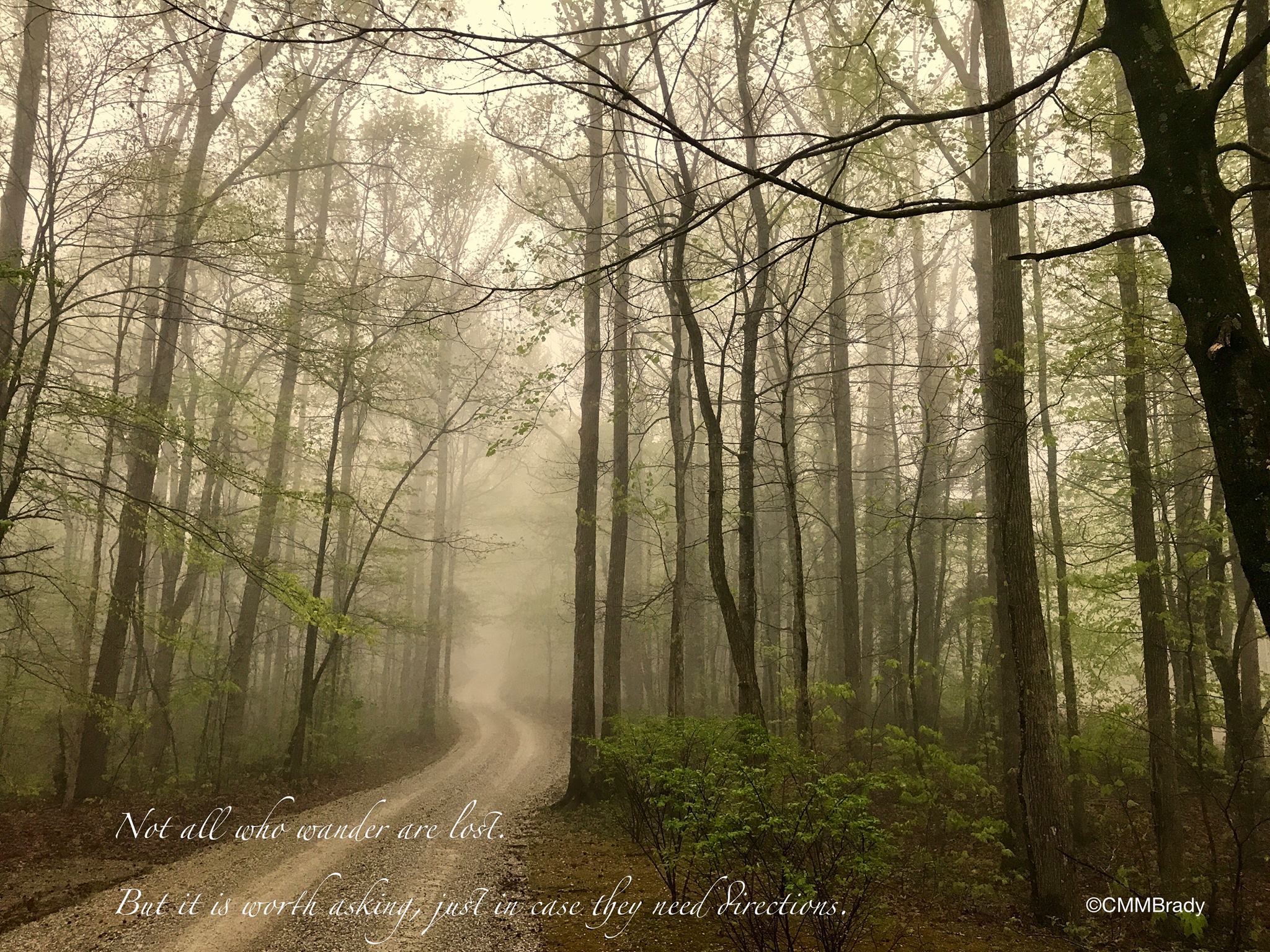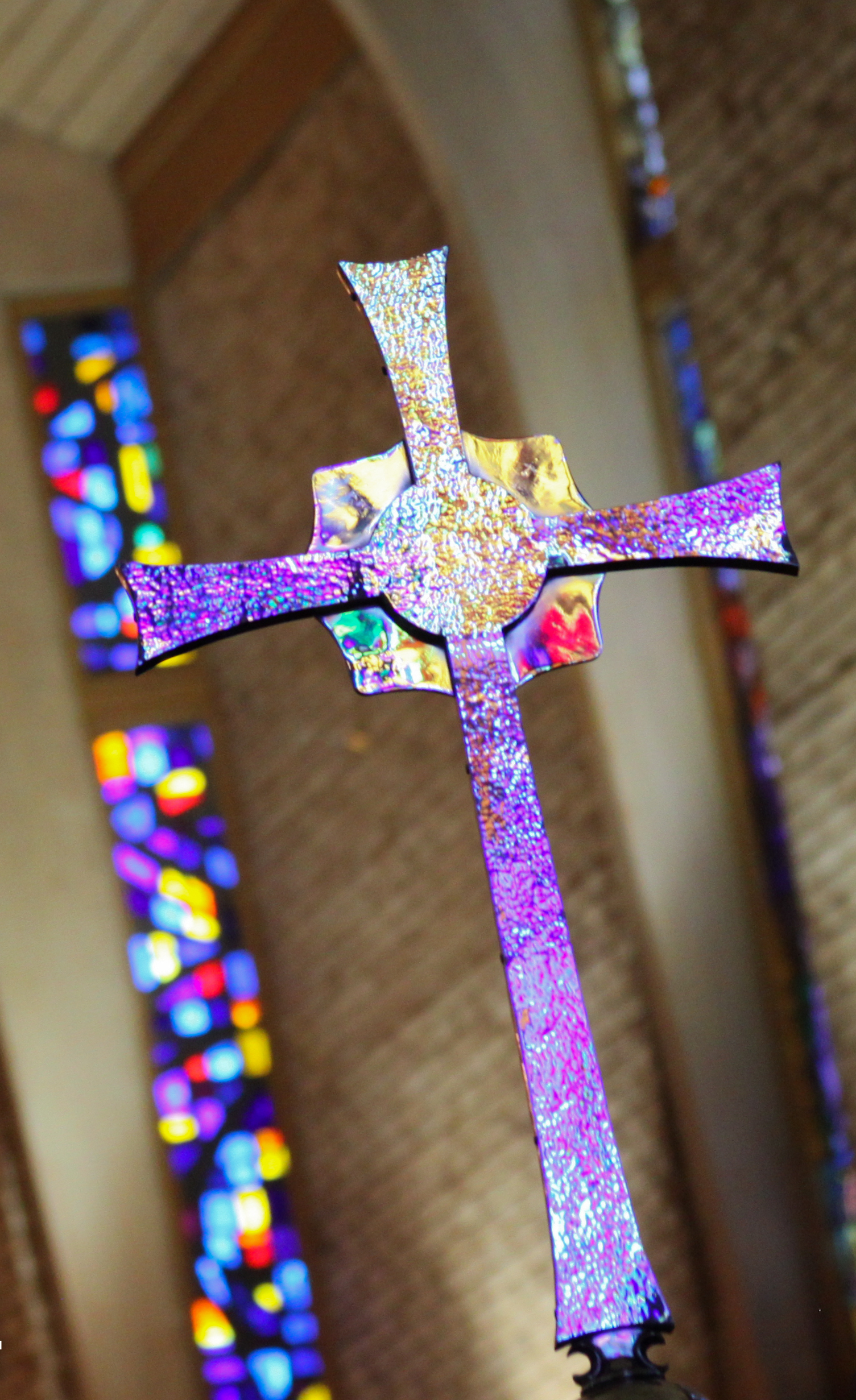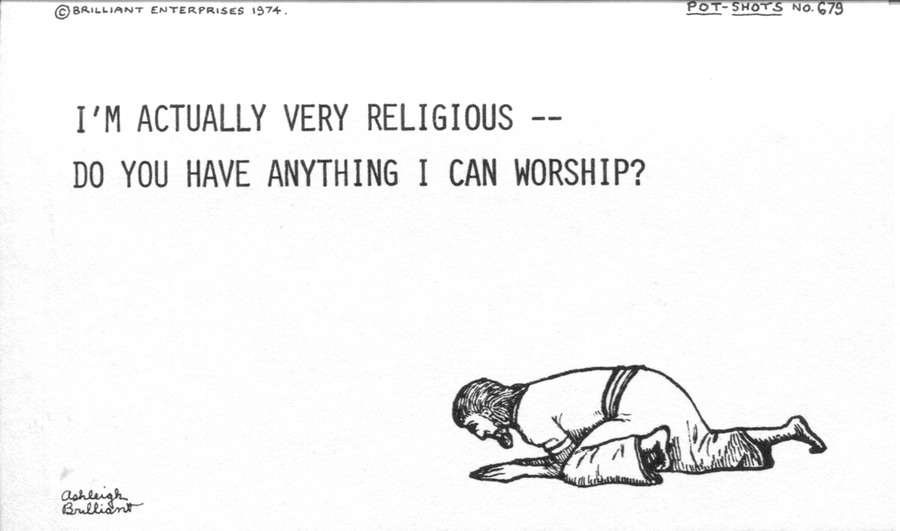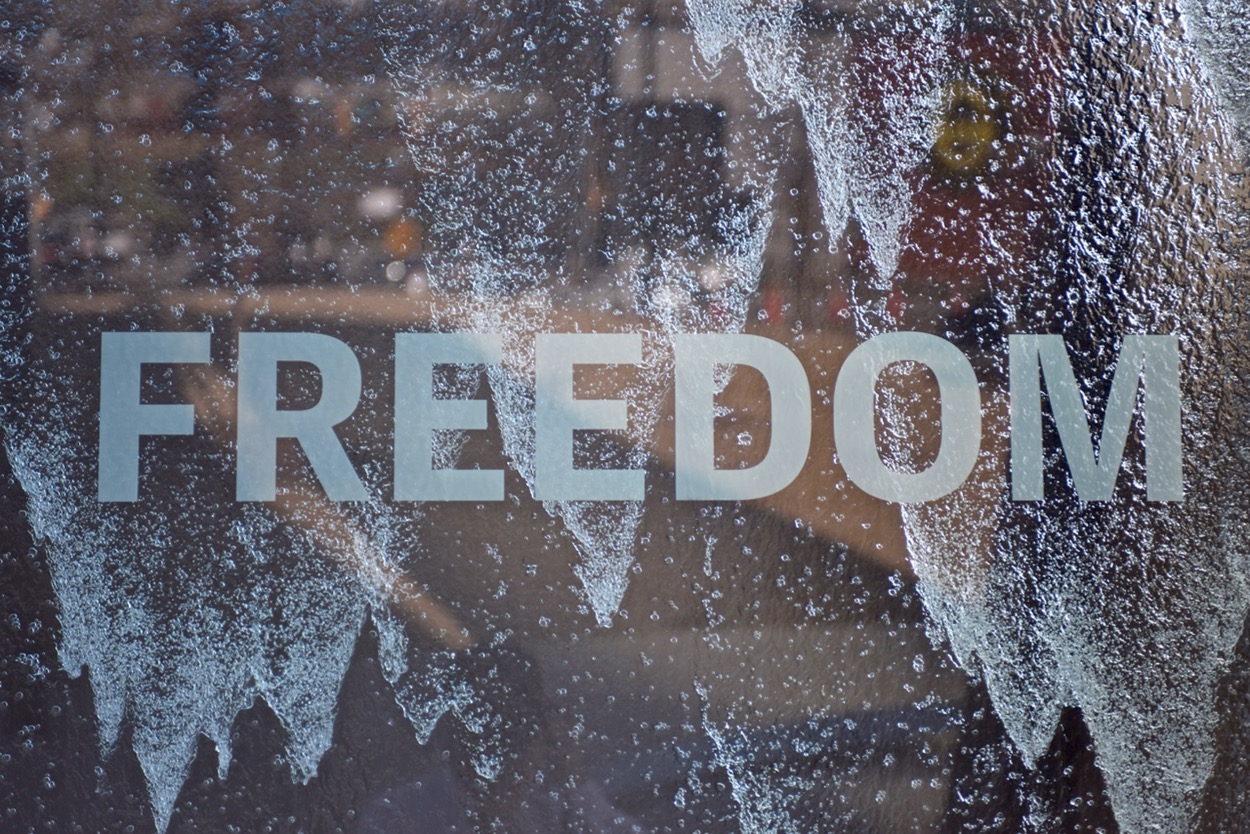Third Sunday of Advent (December 15, 2019) – Audio
A highway shall be there, and it shall be called the Holy Way; … it shall be for God’s people; no traveler, not even fools, shall go astray.
Isa. 35:8
During my academic sabbatical, three years ago now, I was interim rector of a parish in Nashville. You may not be fully aware of this, but being a rector is one of the most challenging jobs there is and being an interim rector is hardly any better. You have to do a lot of difficult work to help the congregation cope with the past rector’s leaving (whether they left on good terms or bad) and to prepare them to receive the new rector. Sometimes this can require the equivalent of group therapy.
Well, in this time the bishop, sensitive to the fact that this was supposed to be on my sabbatical and I was supposed to be writing a book, encouraged me to take a three day retreat to St. Mary’s Sewanee. One misty morning I was walking the gravel path to the convent of the Sisters of St. Mary for Morning Prayer and the scene was breathtaking. The path went ahead, bending slightly to the left, the colors in the gray light were saturated and I felt I was walking into the land of Fairy. I took a picture with my phone that actually came out quite well. In the manner of memes, I added a quote from Tolkien that is well known. “Not all those who wander are lost.” A wonderful sentiment, part of a poem introducing the character Aragorn. “All that is gold does not glitter, Not all those who wander are lost.”
So I posted this beautiful picture with this inspiring quote and then I added, “but it is worth asking, just in case they need directions.”

I am reminded of this image and quote, not simply because I just finished a wonderful book on Tolkien and the Inklings, but because our Advent readings so often invoke this image of the path that we walk upon through life. The prophet Isaiah, speaking about the Day of the Lord, reassures us that although it is a day of judgment, it is the redemption of God’s people, God bringing us home. The image is of those who have been cast out, caused to live in exile from their true home, walking, skipping and rejoicing! home to God.
35:8 A highway shall be there, and it shall be called the Holy Way; the unclean shall not travel on it, but it shall be for God’s people; no traveler, not even fools, shall go astray. … 10 And the ransomed of the Lord shall return, and come to Zion with singing; everlasting joy shall be upon their heads; they shall obtain joy and gladness, and sorrow and sighing shall flee away.
Isaiah speaks to Israel, who had been banished from their homelands to live in exile in Babylon, but he speaks to us as well. We live in exile here, far from the world God created for us and in which we were created to dwell. We long and we yearn for health and justice, because this broken world choked with weeds of wickedness is not where we were meant to live. BUT, the prophet tells us, God is bringing us home on a safe, secure path.
This metaphor of life as a journey has been with humanity from the beginning and can be found across all cultures and traditions. In the Creation story of Genesis, after Adam and Eve had sinned, it says “therefore the Lord God sent [them] forth from the garden of Eden.” Their journey had now really begun. As I visualize them stepping out from that lush and safe place, it reminds me of another Tolkien image, from The Lord of the Rings. [mfn]I misspoke in the sermon and said it was from The Hobbit, which is of course about Bilbo. Mea culpa.[/mfn] Frodo is warned by Gandalf, right at the outset, “It’s a dangerous business, Frodo, going out your door. You step onto the road, and if you don’t keep your feet, there’s no knowing where you might be swept off to.”
There are countless tales and novels of the great journey of life, the hero who must make a passage though a dark time and place to grow more fully into their true self. The necessary wrong turns, dead ends, and difficult crossings that break down and build up the character. “Life is a journey” is a cliché only because there is truth in it. In that journey, however, we are not left to simply wander aimlessly; although it may often feel that way. We are not out in the wilderness, without any tracks or paths to follow; we have been given a road map.
While the Hebrew word for teaching that we associate with the Law of the Bible is “Torah,” the proper noun and that used to describe legal material in Judaism is called Halacha, which literally means, “the way.” It is from the root meaning “to walk.” The Law of God is viewed as the map providing the direction, the guideposts for us to follow through life so that we can walk “through the darkest valley of the shadow of death” and fear no evil because we are walking along the path that God has provided for us. Paul and the Prophets would remind us, that it is not meant to trap us, but to guide us and direct us ever closer to God. God then sent Jesus to provide the living example and he called all the world to come and follow him. That is why the name by which those who followed Jesus were first called was, “The Way.”
Matt 3:1 In those days John the Baptist appeared in the wilderness of Judea, proclaiming, 2 “Repent, for the kingdom of heaven has come near.” 3 This is the one of whom the prophet Isaiah spoke when he said,
“The voice of one crying out in the wilderness:
‘Prepare the way of the Lord,
make his paths straight.’”
Last week Father Hendree shared with us the meanings of “sin,” “confession,” and “repentance.” Sin he reminded us, is when we “miss the mark,” and Father Hendree used the image of archery. We could add to that the conception of straying from the path set before us. Repentance then, is to return our focus and attention to the intended target, to see again and each time more clearly, the path that we are to follow.
John the Baptist, and all the prophets really, preached repentance in order to prepare the way of the Lord into our lives. So while God has provided a path for us to follow, traffic on the road flows both ways. John is calling us to repent in order to clear the path of our hearts of all debris and detritus so that there is a wide and straight path for God could enter into our lives.
This is why we talk of Advent as a season of preparation. Today, we think of it as cleaning, decorating, and cooking to get ready for Christmas. But Advent is not about the first coming of Jesus into this world, but his Second. We are to prepare our hearts and this world to be ready for God to enter fully and completely into it. This image is found in Paul’s language when he talks about Jesus coming again, his parousia, a Greek word closely related to Latin adventus. This term was used to describe when a king or emperor would come to visit a city in the realm. All the citizens of the city would “make straight” the entrance to the city, the would clear the highway and then come out of the city to meet the king on the road. You did not simply sit behind the city walls, waiting for him to knock at the gate. (Thus 1 Thess. 4:17) No! The way was made clear and with celebration they would go out and meet their Lord and then bring him with rejoicing into the heart of their lives, their home.
The parousia, that advent of our God and King entering into our world and our lives began with the birth of Jesus. The transformation had already begun in his life and ministry.
11:3 [The disciples of John the Baptist asked Jesus], “Are you the one who is to come, or are we to wait for another?” 4 Jesus answered them, “Go and tell John what you hear and see: 5 the blind receive their sight, the lame walk, the lepers are cleansed, the deaf hear, the dead are raised, and the poor have good news brought to them. 6 And blessed is anyone who takes no offense at me.”
Jesus has already met us and has set us upon that highway called “the Holy Way,” leading us home to God with joy and gladness. But the journey is not yet over and we must make our way back into the City of God. We have a tendency to stray from the path, we are certain that we know a short cut (a very “dad” thing), or to explore what we think will be more interesting or exciting routes. And it is true! There are all sorts of interesting things over there! Beautiful flowers, intoxicating smells and vistas to be seen! But like the Instagrammer at the Grand Canyon, we sometimes walk too close to the edge believing the selfie off the beaten path will be THE ONE that we MUST have. Yet, when we go too close to the edge…we fall off the Way, the path God has for us.
That is OK! God knows it is our human nature. That is why God sent us prophets like Isaiah and John the Baptist, to call us to turn around, שוב, to repent, to get headed back on the right path. And to prepare that path in our lives so that God might walk right in!
Listen and look, hear and see all that God is doing; it is the Advent of Our Lord. How will you prepare the Way of the Lord? Amen. ✠





